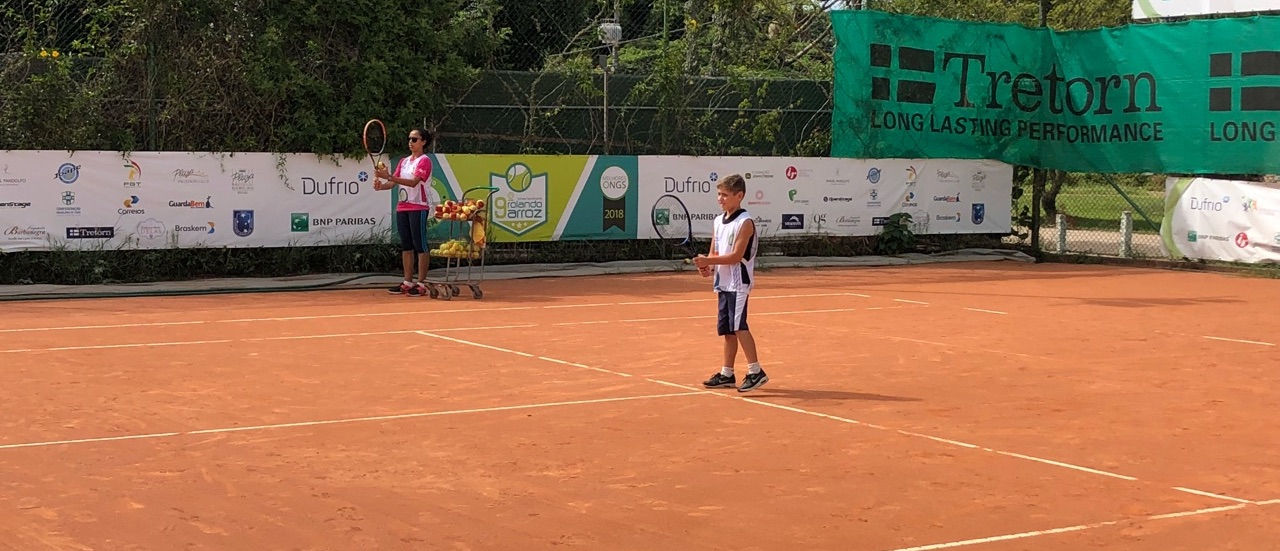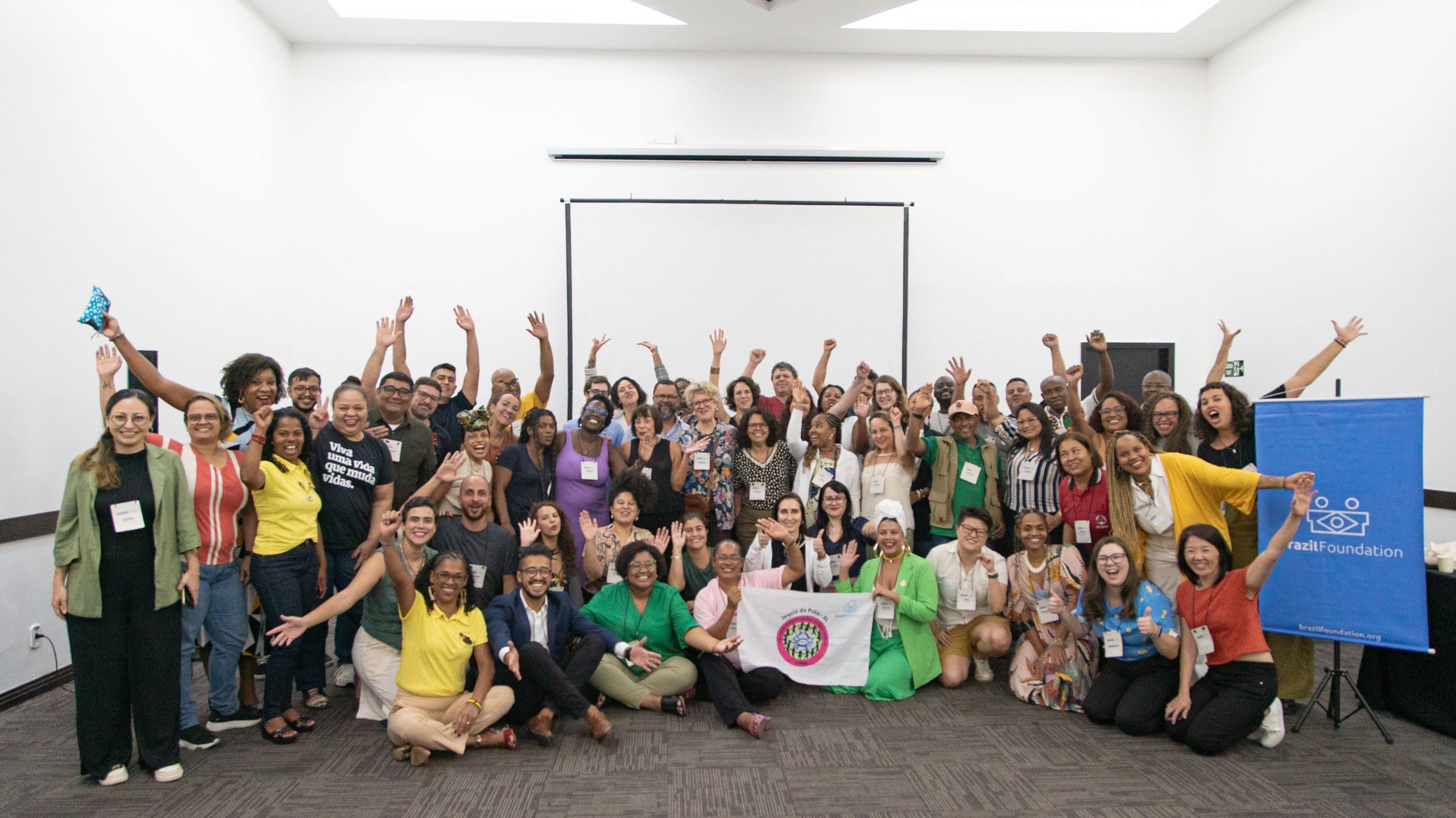A Shot Against Social Inequality
In Porto Alegre, tennis is the gateway to a new life
By Nuria Saldanha
Translation: Juliana Almeida
While Marcelo Rushel traveled the world photographing Brazilian tennis champions such as Gustavo Kuerten, one image did not leave his mind. “Every time I came back home I walked by an abandoned tennis court and imagined the neighborhood kids learning how to play tennis and other sports. I thought it would be a good place for a social project.”
Marcelo, who started off as an office boy himself, had an idea to use the sport that brought him fame as a professional photographer to help inspire low-income children to reach their potential. And he wanted to do it in his neighborhood, Belém Novo, located in the south of Porto Alegre, far from the city center and its public and children protective services.
In the early 2000s, Marcelo decided to rent a court to offer activities to the neighborhood children, and convinced his wife, Luciane Barcelos da Silva, to get on board. He named the project WimBelemDon, a play on words that uses the name of his neighborhood while paying homage to Wimbledon, the most traditional tennis tournament in the world, which takes place in London, England.
In March 2003, WimBelemDon opened its doors to 40 children between 8 and 12 years old, offering tennis activities and reading workshops. The initiative thrived, and as he recognized the growing demands and needs of the new students, Marcelo and his team started creating more workshop options.
Today WinBelemDon serves 60 children and teenagers between 6 and 18 years old. They offer tennis lessons, participate in social-emotional, pedagogical and cultural workshops such as a learning and literacy lab, and attend movies, the theater and sporting events, where participants also receive free food. The goal is not to make professional tennis players, though talented children are encouraged, but to use tennis to reduce social inequality. The focus is to offer access to sport as a way to reach children and teenagers, provide them the care they deserve, and encourage them to believe in their own dreams.

“We are faced with prejudice. People see our organized headquarters and think we don’t need money. Many people also think that tennis is a sport for the elite and is inconsistent with these kid’s circumstances”, says Marcelo Ruschel.
The truth is, the stories of those who take part in the WimBelemDom program are the best proof that tennis really is for everyone. In 15 years, the organization has served more than 1,000 children and changed their lives, including Leo, who, in 2005 at the age of 12, began to take lessons at WimBelemDon and never looked back. He was accepted by the Federal University of Rio Grande do Sul where he majored in Math, and, during his studies, he became a volunteer for the project. He graduated in 2017 as valedictorian, with outstanding grades.
[envira-gallery id=”30728″]
In 18 years, the organization provided more than 20,000 hours of activities and services to protect children and adolescents. Their doors are always open to talented children. Jaleska Mendes, 24, who participated in the project, stood out in the local tournament, won a scholarship abroad, majored in Physical Education and is now a tennis instructor for the new students.

Tennis and resilience
How many times have we seen professional tennis players turn the tables in a match that looked like it was over? Resilience – the ability to resist and react in difficult situations – is one of the most important skills for a tennis player. This instruction greatly impacts the lives of children and teenagers who are socially vulnerable, and it has also taught the WimBelemDon team on various occasions.
In 2017, WimBelemDon almost closed its doors. Due to an economic crisis that shook the country, financial support dwindled considerably. But with the help of BrazilFoundation’s international fundraising campaign “abrace o Brasil”, it found new footing. Out of the 100 participating organizations in the campaign, WimBelemDon was the one that raised the most money – more than R$ 100,000. The 220 donations that came in from around the world were used to help sustain their activities for the children and teenagers.
At the beginning of 2018, they received another blow: a fire destroyed two dressing rooms and a storage room with the project’s sporting supplies. Classes were transferred to a borrowed space, and the classes ceased to take place on their usual daily basis. But WimBelemDon overcame this by going door to door to ask for help, and from that they were able to rebuild the headquarters which turned out to be even better than the original. The new facilities have new gutters and cisterns to reuse rainwater and solar energy.
After the fire
[envira-gallery id=”30558″]
After reconstruction
[envira-gallery id=”30720″]
Philanthropy and institutional empowerment
In 2018, WinBelemDon received a grant from BrazilFoundation for institutional support – resources to help improve upon their long-term sustainability.
They used the R$80,000 to increase the number of children and teenagers assisted, train the team to improve the services offered to students, invest in communication with a focus on promoting the project’s impact so as to attract the attention of new donors, as well as improve the IT infrastructure by buying computers and management software.

